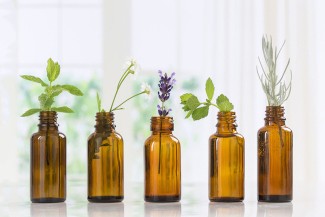
The captivating world of essential oils has garnered a lot of interest over the years. They're not just appealing because of their soothing aromas or their attractive little bottles, but also due to their potential benefits in enhancing well-being. Essential oils are the essence of a plant, captured in a potent liquid form, which can be used for a variety of health-related purposes. Let's take a closer look at what essential oils are, some popular ones to consider, and how to use them safely and effectively.
What Are Essential Oils?
Essential oils are highly concentrated extracts from the roots, leaves, seeds, or blossoms of plants. They’re typically obtained through distillation, cold pressing, or solvent extraction. Essential oils have the plant's fragrance, or "essence," which is why they carry the specific scent of the plant from which they’re derived.
The therapeutic use of these oils, often through inhalation or skin application, is a cornerstone of aromatherapy. This holistic healing treatment aims to improve physical, mental, and emotional health.
Popular Essential Oils and Their Uses
- Lavender: Known for its calming and relaxing properties, lavender oil can help reduce anxiety and stress. It’s also used for improving sleep quality and relieving headaches.
- Peppermint: This essential oil is praised for its invigorating effects. It’s often used to boost energy and aid digestion.
- Tea Tree: With its powerful antiseptic properties, tea tree oil is commonly used for treating acne, reducing inflammation, and combating fungal infections.
- Eucalyptus: This oil is renowned for its ability to clear congestion and improve respiratory conditions. It also serves as a powerful insect repellent.
- Lemon: Lemon oil is loved for its refreshing and uplifting scent. It's also used as a natural cleaner and disinfectant around the home.
Using Essential Oils Safely
While essential oils offer many benefits, it's crucial to use them safely. Here are a few guidelines to follow:
- Dilution: Essential oils are extremely potent and should never be applied directly to the skin undiluted. They should be mixed with a carrier oil like jojoba or coconut oil to prevent skin irritation or sensitization.
- Ingestion: In general, essential oils should not be ingested without the advice of a healthcare provider or a professional trained in the proper use of essential oils.
- Pregnancy and Children: Certain essential oils can be harmful to pregnant women and children. Always consult with a healthcare professional before using essential oils in these cases.
- Allergies: Conduct a patch test to see if you're allergic to an essential oil before using it extensively. Apply a small, diluted amount on a patch of skin and wait for 24 hours to check for any adverse reaction.
Essential oils can be a wonderful addition to your wellness regimen, adding a sensory depth to your self-care routines. Whether you're using them for their delightful scents or potential health benefits, remember to do your research and use them responsibly. With the right knowledge, essential oils can indeed enhance your quality of life and offer a natural approach to wellness. However, they should never replace professional medical advice or treatment. Always consult with a healthcare provider when in doubt about using essential oils, especially for serious health conditions.